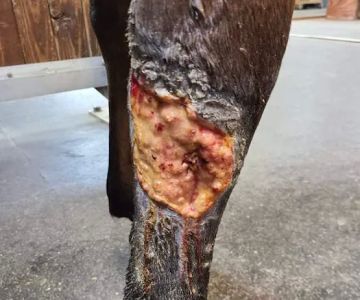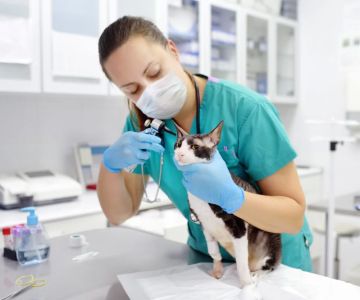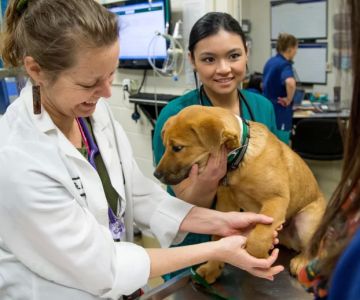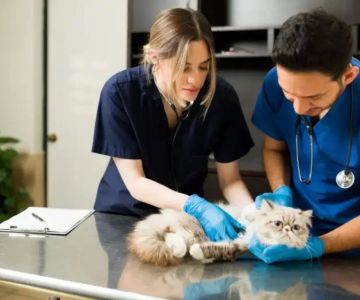Can a PhD in Zoology Become a Veterinarian? Understanding the Path
- zoology-vs-veterinary-medicine
- educational-requirements-for-veterinarians
- advantages-of-phd-in-zoology-for-vet-career
- steps-to-transition-from-phd-to-veterinary-medicine
- real-life-examples-and-case-studies
- career-opportunities-with-phd-zoology-and-vet-credentials
1. Differences and Overlaps Between Zoology and Veterinary Medicine
A PhD in zoology primarily focuses on the study of animals in their natural habitats, including their physiology, behavior, and ecology. Veterinary medicine, however, concentrates on the diagnosis, treatment, and prevention of diseases in animals, often involving direct clinical care. While both fields share a deep interest in animals, the practical and medical skill sets differ significantly.
Understanding these distinctions is crucial for anyone with a zoology background considering a veterinary career. Although related, zoology does not substitute for the clinical training required to become a veterinarian.
2. Educational Requirements for Becoming a Licensed Veterinarian
To practice veterinary medicine in the USA, obtaining a Doctor of Veterinary Medicine (DVM) degree is mandatory. This involves completing a four-year program accredited by the AVMA, which covers clinical skills, medical sciences, and practical experience. Regardless of holding a PhD in zoology, one must fulfill these requirements to earn a veterinary license.
The rigorous nature of veterinary programs means zoology PhD holders will often need to meet prerequisite courses and clinical training before enrollment, making this a time-intensive but rewarding pathway.
3. Advantages of Holding a PhD in Zoology in Veterinary Medicine
Despite additional education requirements, a PhD in zoology provides strong advantages for veterinary candidates. In-depth knowledge of animal biology, behavior, and research methods enhances diagnostic skills and scientific understanding. Such candidates often excel in specialties like wildlife medicine, conservation veterinary science, or research-oriented veterinary roles.
Employers and clients may value this advanced academic background, especially in roles that blend clinical practice with research or environmental health.
4. How to Transition from a PhD in Zoology to Veterinary Practice
PhD zoology graduates interested in veterinary practice should start by completing prerequisite courses in chemistry, biology, and anatomy if not already done. Applying to accredited veterinary schools, preparing for the GRE or other required exams, and securing clinical experience are key steps. Additionally, shadowing veterinarians and gaining hands-on exposure can strengthen applications and clarify career goals.
This transition demands dedication but is achievable with clear planning and commitment.
5. Real-Life Stories of Zoology PhD Holders Becoming Veterinarians
Several professionals share inspiring stories of shifting from academic research in zoology to practicing veterinary medicine. For instance, one PhD graduate used their research experience to specialize in exotic animal care, bringing unique expertise to clinical settings. Others contribute to public health initiatives or conservation efforts requiring veterinary credentials.
These examples highlight the versatility and potential for impactful careers when combining zoology knowledge with veterinary skills.
6. Expanding Career Opportunities with Both PhD Zoology and Veterinary Credentials
Combining a PhD in zoology with a veterinary license opens doors to diverse careers beyond traditional clinical practice. Opportunities include academic research, wildlife rehabilitation, pharmaceutical development, and environmental consultancy. This dual expertise positions professionals as leaders in animal health, conservation, and interdisciplinary science.
For those passionate about both science and animal care, this path offers a unique and fulfilling professional journey.
Explore Your Veterinary Career Starting From a PhD in Zoology
If you’re wondering “can PhD zoology be a veterinarian?” the answer is yes, but with additional steps. Pursuing veterinary licensure after a zoology PhD is a challenging yet rewarding route that leverages your deep scientific understanding and opens varied career paths.
Consider exploring accredited veterinary programs and preparatory courses now to start your transition. Equip yourself with both academic excellence and clinical expertise to become a veterinary professional who makes a real difference in animal health and welfare.
Ready to take the next step? Discover top resources, study guides, and application tips to smoothly navigate the veterinary licensing process.












